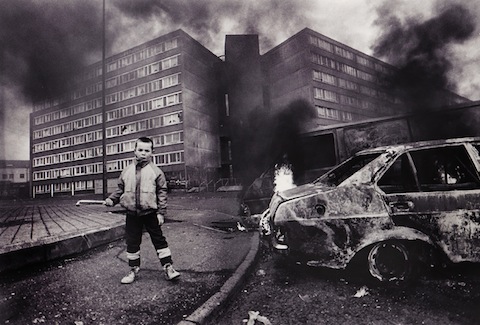
I’m a few pages from the end of Kevin Myers’ Watching the Door, the peak of which is an extended discussion of how The Troubles became economically advantageous for both sides. I particularly enjoyed this dissection of how Belfast’s various paramilitary organization profited off the mayhem they created:
Glaziers—who, because they were associated with the building industry, tended to be Catholic—were in huge demand simply because of the bombings. Even a small explosion could break scores of windows; a large one simply hundreds. Bloody Friday, in all its extravagant generosity, had shattered many thousands of windows. The British government footed the bill for the damage, and there was barely any serious auditing of glazier bills. What government department counts broken windows?
Since glaziers were being made rich by the Troubles, the IRA thought it only right that it should get some of the vast amounts of government money pouring through their coffers, so it did. Glaziers paid the IRA (and in loyalist areas, by the same logic, the UVF or the UDA) protection. So, the British government was effectively subsidizing the Troubles; the more damage the terrorists did, the more money they would get‐and not just through glaziers, but through the entire building industry. As a matter of pride, the British government insisted on bombed buildings being reconstructed. Then they would be rebombed. Then rebuilt. Then rebombed…
A nice racket for the men with guns. And a good reason why they had so little incentive to negotiate an end to the violence.
(Image via Jez Coulson)


Jordan // Feb 22, 2012 at 3:09 pm
Jeeze. If like if everyone had fire insurance, but the insurance companies never sent adjustors around to determine the cause.
Reminds me of Terry Prachett’s “The Colour of Magic” where a city-wide fire is started because the concept of fire insurance is introduced into a major city improperly.
Brendan I. Koerner // Feb 22, 2012 at 9:15 pm
@Jordan: Just finished the book, and he actually comes back to this point toward the end–albeit in a very self-deprecating way. He points out that the violence was good for his business, too–that is, journalism. And so he had a perverse incentive to file reports that would perpetuate The Troubles, though he did so largely subconsciously until the end.
Brian Moore // Feb 23, 2012 at 9:52 am
It’s not often that examples of the broken-window fallacy are… actually about broken windows.